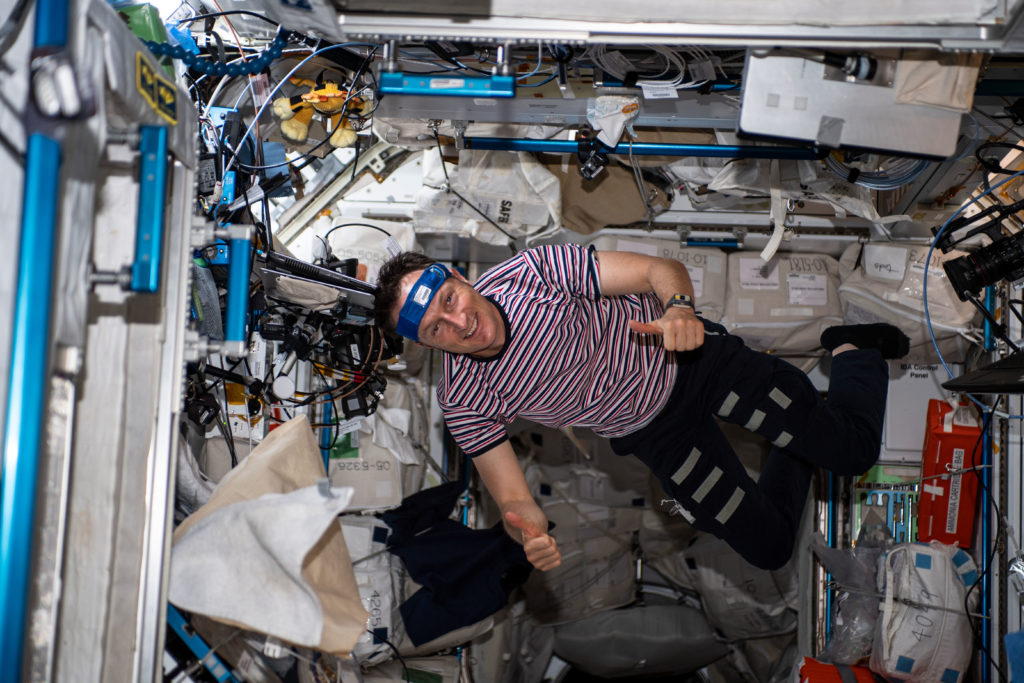Mini sensor on a headband to measure core body temperature
Spending time in microgravity has a major impact on the human body. Ensuring the physical and mental health of astronauts on the International Space Station ISS is a top priority. Experiments on the space station investigated the body’s core temperature, which can have an enormous influence on these two aspects. The ‘Thermolab’ (2008-2015) and ‘Circadian Rhythm’ (2015-2019) experiments led by the Center for Space Medicine at Charité in Berlin, found that astronauts’ core body temperature is permanently elevated during long-term stays in space. This has a significant impact on their bodies and can be dangerous if they are subjected to increased stress, for example during sport or extravehicular activities. The immune system is also on constant alert due to the permanently elevated temperature.
In these experiments, a specially developed sensor was used to measure the temperature in accordance with the test specifications. The sensor comes from the company Dräger and is now being used on Earth to monitor the temperature during surgeries, of premature babies and workers under extreme conditions. The company KORA IndustrieElektronik GmbH further developed the sensor for use in Thermolab and Circadian Rhythm experiments and modified and qualified it for use in space.
With Thermo-Mini, a new, smaller and very mobile version of the sensor, as well as KORA’s own data storage and power supply units, were developed. This version was tested in space during the German ESA astronaut Matthias Maurer’s Cosmic Kiss mission and is now being further modified with ‘T-Mini’ for the next mission. The different generations of thermal sensors for the ISS were developed on behalf of the German Space Agency at DLR. T-Mini, one of these space-proven ‘thermal sensors’, will be on display in the Space Pavilion at ILA 2024.
Link:
German Aerospace Center (DLR)
German Space Agency at DLR, Research and Exploration
E-Mail contact-dlr@DLR.de
